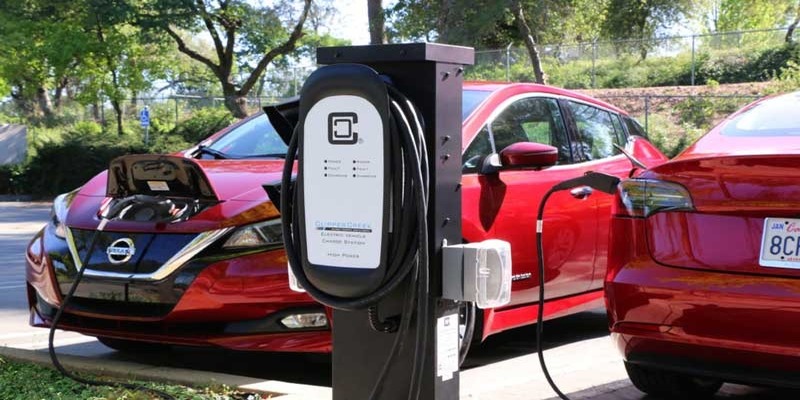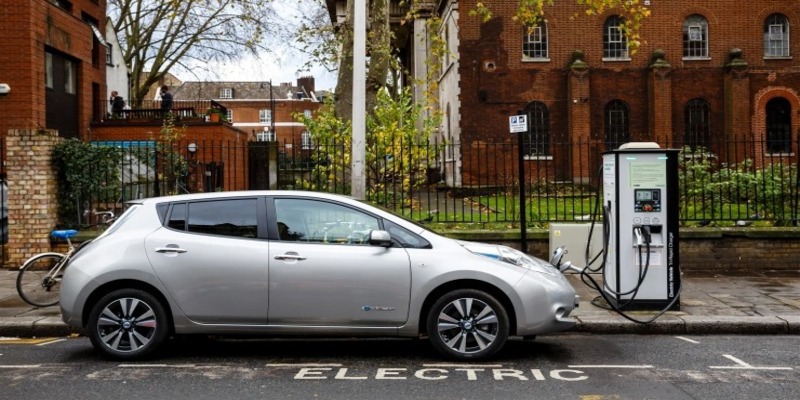How long does it take to charge an electric car? Interested in the knowing charging time for an electric vehicle? Put your mind at ease. Depending on the model, charging an electric car might take anywhere from 30 minutes to 48 hours. That's a solid indication that there are many moving parts to estimate how long it will take to charge an EV.
In this article, we'll go over the specifics of electric vehicle charging periods and some tips for getting a full charge as quickly as possible without sacrificing battery life.
The Average Charging Time for an Electric Vehicle

It's helpful to have a high-level understanding of what factors into how long an electric car takes to charge before diving into the specifics.
There is a wide variety of EVs on the market right now, and each model comes with a selection of battery capacities. Car manufacturers often provide upgraded battery packs as an option for specific vehicles. kWh is the standard unit of measurement for electric vehicle battery packs.
How long does it take to charge for an electric car to charge? An energy unit is a kilowatt-hour. The energy capacity of a small electric vehicle's battery pack might be 30 kWh. The power of a big electric vehicle's battery pack might be 100kWh.
How Does Charging Time Work?
The battery pack is analogous to the size of the fuel tank in a gas or diesel vehicle. Charge times for electric vehicles vary in kind and size of the battery. Similar to the pace at which gas is dispensed from a gas pump (while electric cars cannot charge that rapidly, the idea remains the same).
Compared to an ultra-rapid public ChargePoint, such as the sort you could find at a highway facility, a standard three-pin household socket will only provide a charge of 2.3 kW. To calculate how long it would take to charge an EV fully, divide the battery capacity by the charging rate.
Practical Electric Vehicle Charging

The preceding is based on the mathematics you could complete in an exercise book; a 100kWh battery can be charged in an hour using a 100kW charger.
Electric vehicle (EV) batteries are complicated, and the actual world dislikes having more shades of grey than an exercise book. Batteries feature complex management systems that may change the rate of the charge they get, aiding in their "health".
Other external variables can also affect the speed at which a battery is charged. The rate at which the battery charges depends on several factors, some of which are listed below.
Battery Capacity
When utilizing a quick public charger, the vehicle's charging pace will generally decrease as the battery approaches total capacity.
In-Room/Battery Temperature
In extreme temperatures, electric vehicle batteries might become damaged. Therefore when this is recognized, the vehicle can reduce the charging current.
Shared EV Chargers
Dual-outlet public EV charging is becoming increasingly common. The charger won't be able to provide optimal charging to both vehicles if they're hooked into the same unit at once. If a lot of people are charging at once or if electricity consumption in a given location or power grid is unusually high, the same thing will happen.
Optimal Charging For Your Vehicle
How long does it take for an electric car to charge at charging station as many manufacturers provide faster-charging systems for sale, and newer electric vehicles can often accept power faster than older models.
Even if hooked into a 150kW charger, a car with a lower maximum power intake cannot be charged any quicker than its rated 50kW rate (though it is perfectly safe to do this).
Further, it is essential to note that it is unusual for an electric automobile to go from completely dead to fully charged in only a few minutes.
If you let the power level drop to zero, you run the danger of (a) being unable to move on a public road and (b) doing no good for the battery. Similarly, it is not advised to charge a battery to its maximum capacity if you care about its longevity.
EV Efficiency Matters
Some electric cars can travel significantly longer on a single kWh of power than others, much as gas and diesel automobiles vary in their efficiency (measured in miles per gallon, or mpg).
A large, heavy, inefficient EV might only get 2.5 miles per kWh, whereas this EV, assuming it was utilized from complete to empty, would get 250 miles out of a 100kWh battery pack.
With the same 100 kWh battery pack, a smaller, more efficient EV could go 500 miles. With only 50 kWh, it could travel 250 miles.




